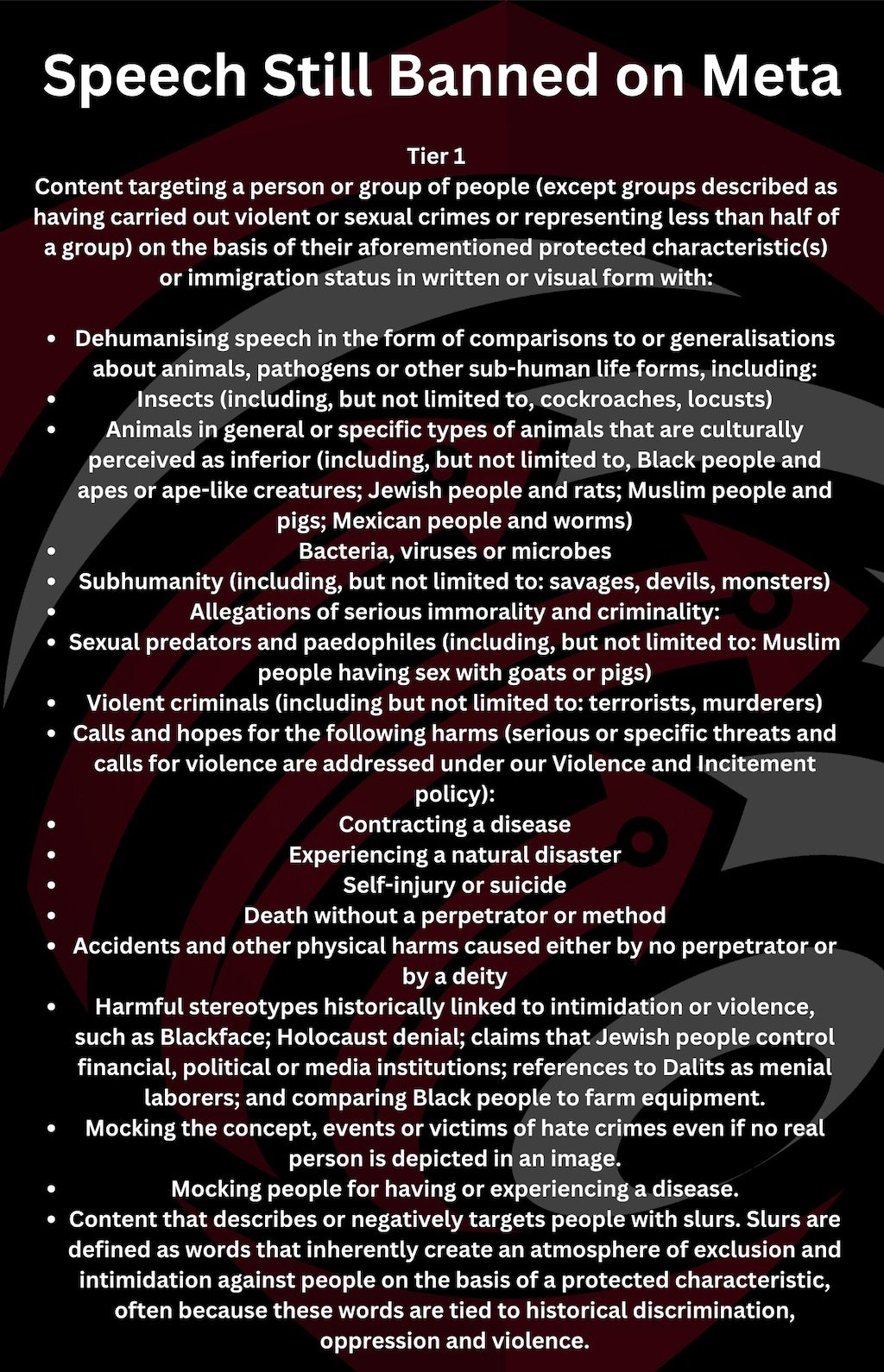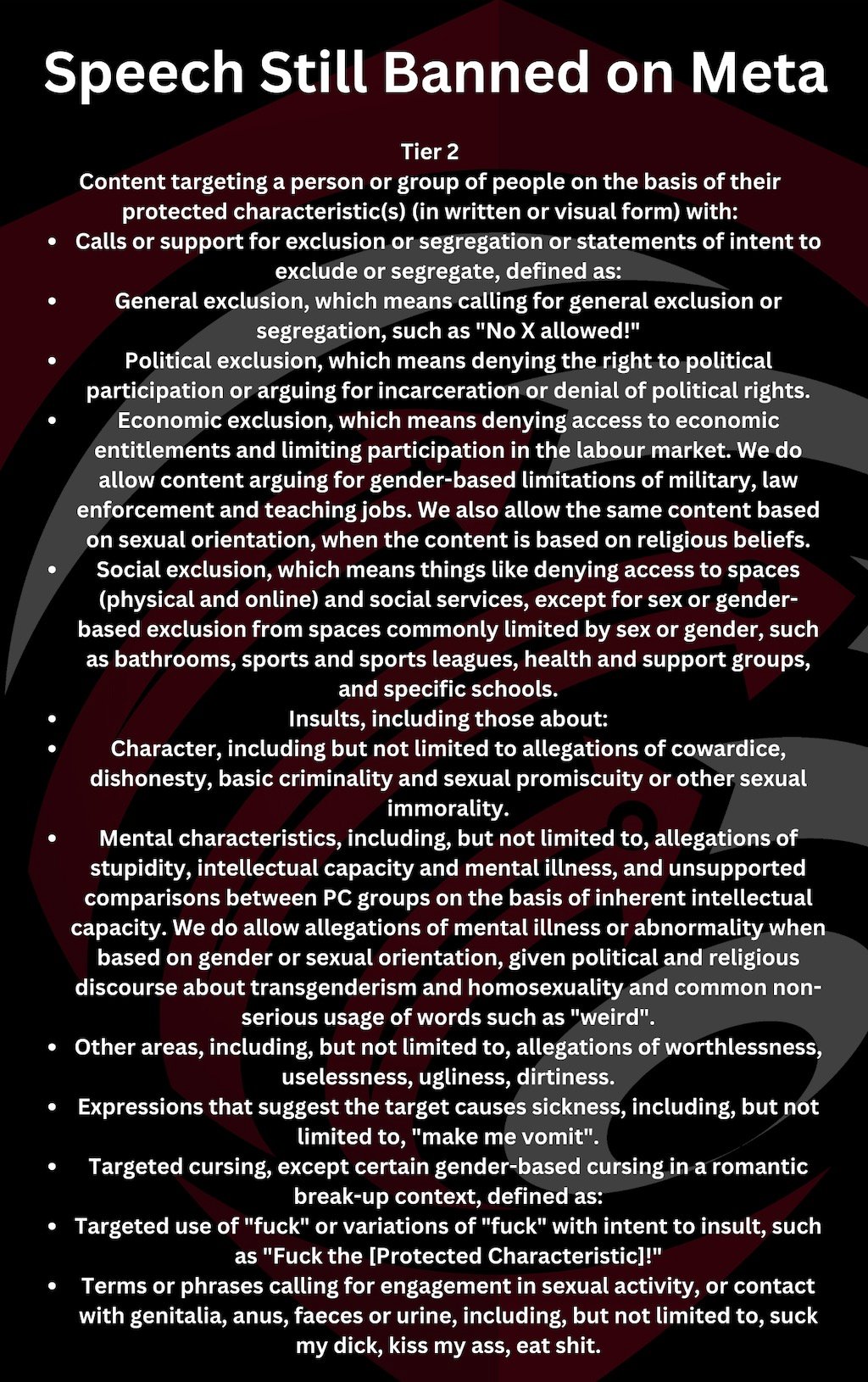Meta’s recent announcement of plans to “restore free expression” on its platforms is accompanied by an extensive list of content restrictions, raising questions about the breadth of speech allowed under the new rules. While CEO Mark Zuckerberg claimed the company is “getting back to its roots” with a focus on open discourse, the detailed policies suggest significant limitations remain.
The updated guidelines categorize prohibited content into two tiers. Tier 1 bans dehumanizing speech, such as comparisons to “animals” or “pathogens,” and stereotypes such as claiming that certain groups control financial, political, or media institutions. Allegations of serious immorality or criminality, such as calling someone a terrorist or pedophile, are also prohibited.
More: Meta Doesn’t Understand Free Speech
The policy also forbids mocking alleged hate crime victims, using targeted slurs, or expressing harmful wishes, such as hoping someone contracts a disease or experiences a disaster. Even expressions as simple as saying someone “makes me vomit” fall under the banned list when targeting individuals based on protected characteristics.

Tier 2 extends restrictions to statements that support exclusion or segregation, such as denying someone access to spaces, jobs, or social services. Insults based on character, mental capacity, or physical worth are similarly prohibited, though some exceptions are made for gender-based insults in specific contexts, like romantic break-ups.
More: Meta Doesn’t Understand Free Speech
Contradictions and Exceptions
The policies do make exceptions for certain types of speech. Accusations of mental illness or abnormality are permitted when based on gender or sexual orientation, under the justification of reflecting political and religious discourse. Similarly, gender-based exclusion in spaces like bathrooms or sports leagues is allowed.
Joel Kaplan, Meta’s Chief Global Affairs Officer, defended the rules, framing them as a balance between safety and free expression. “Our automated enforcement had become too restrictive and frequently made errors,” Kaplan admitted, acknowledging past criticisms of the platform’s moderation policies.

A Strategic Shift?
Meta’s timing has also drawn scrutiny. The policy changes come as the political climate in the US shifts, with Kaplan hinting at collaborations with the incoming Trump administration. This marks a stark pivot from Meta’s earlier moderation efforts under the Biden administration, which included aggressive measures against misinformation during the COVID-19 pandemic.
While Meta has loosened restrictions on politically sensitive topics like immigration and gender issues, the policies continue to enforce strict limits on other areas. Kaplan framed the changes as a return to “America’s First Amendment traditions,” though rules remain far from the unrestricted free speech associated with those principles.
Despite Zuckerberg’s rhetoric, Meta’s approach continues to reflect significant control over discourse. The platform maintains bans on numerous expressions, even as it encourages a broader dialogue on divisive issues. The success of Meta’s latest shift will likely hinge on whether users perceive the changes as meaningful reform or another PR-driven attempt to rebrand.
For now, the platform’s interpretation of “free expression” appears carefully curated, with limits that suggest Meta’s journey toward true openness is far from complete.
Get our full analysis of this topic: Meta Doesn’t Understand Free Speech










